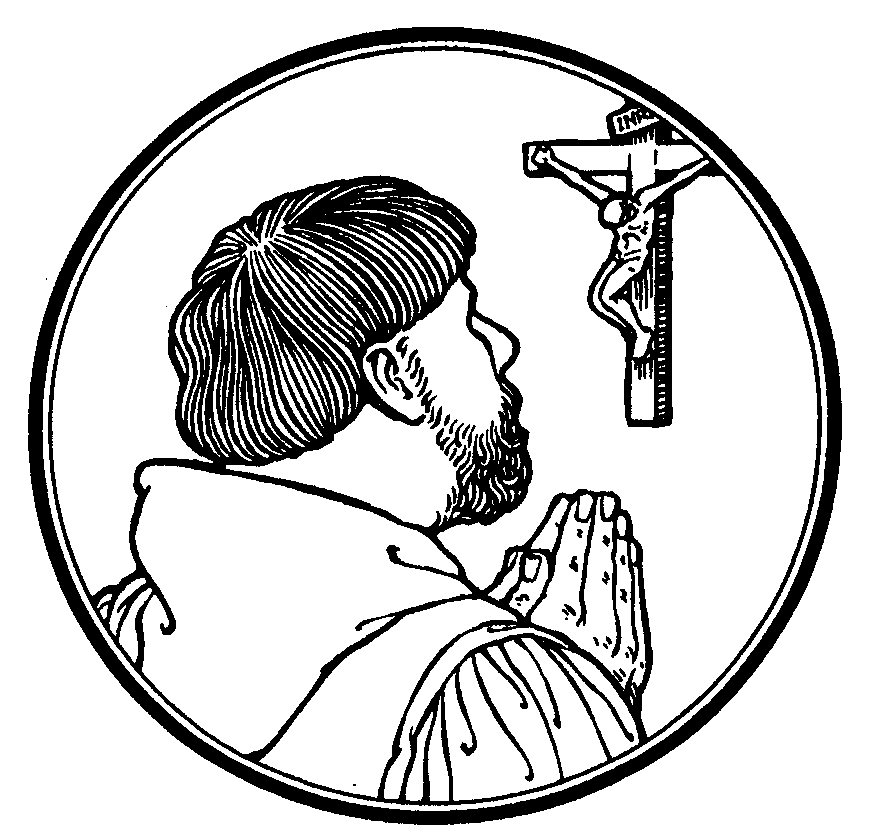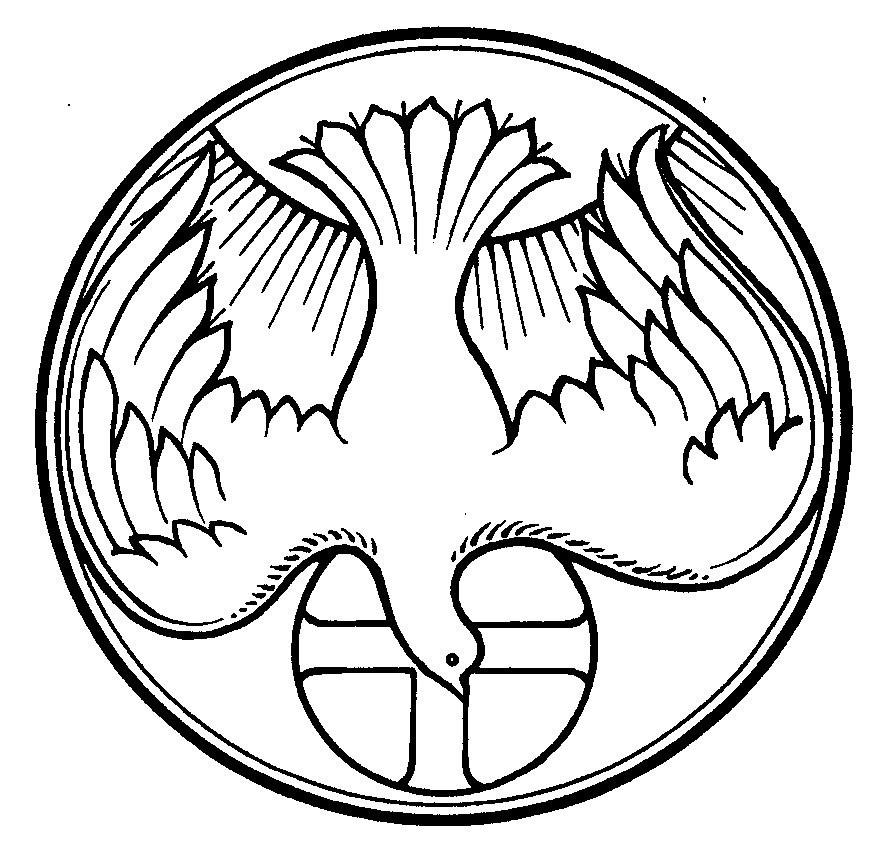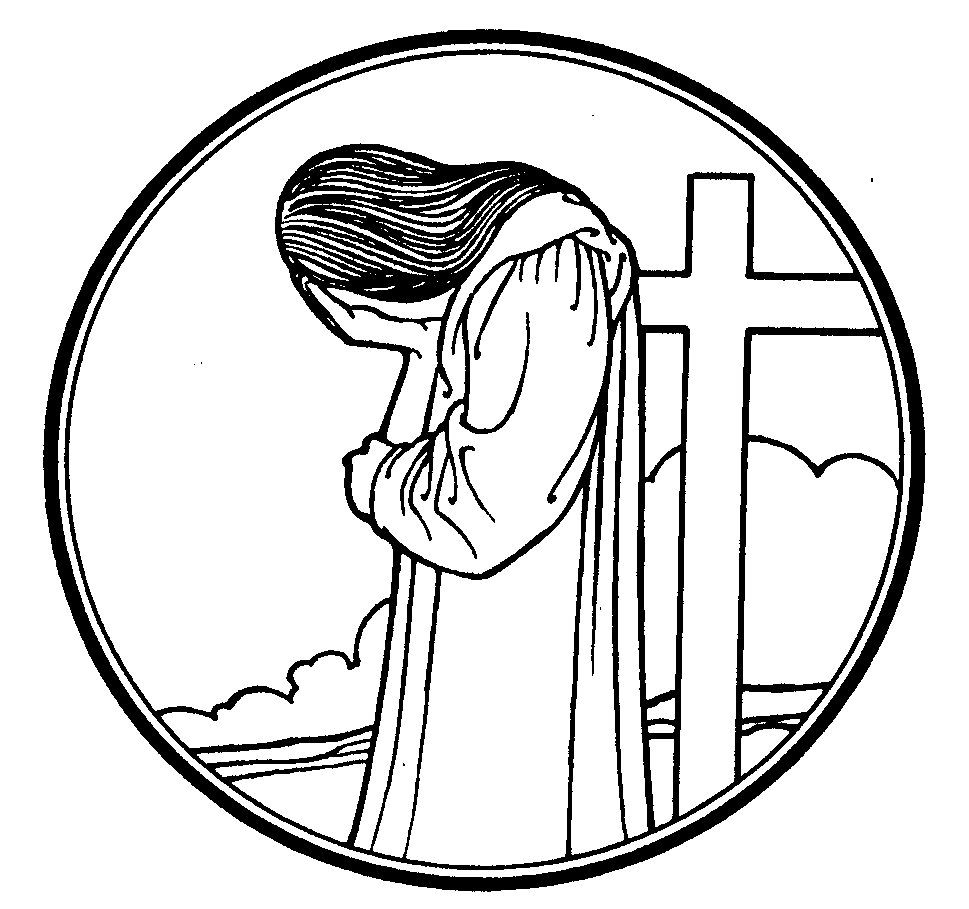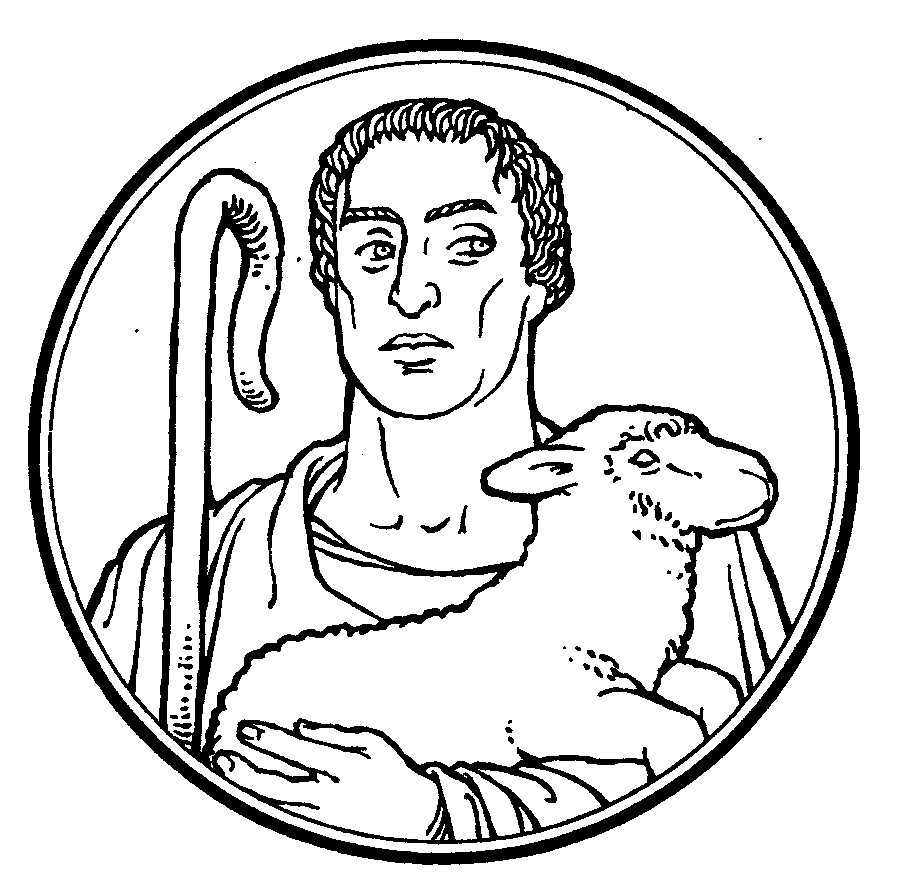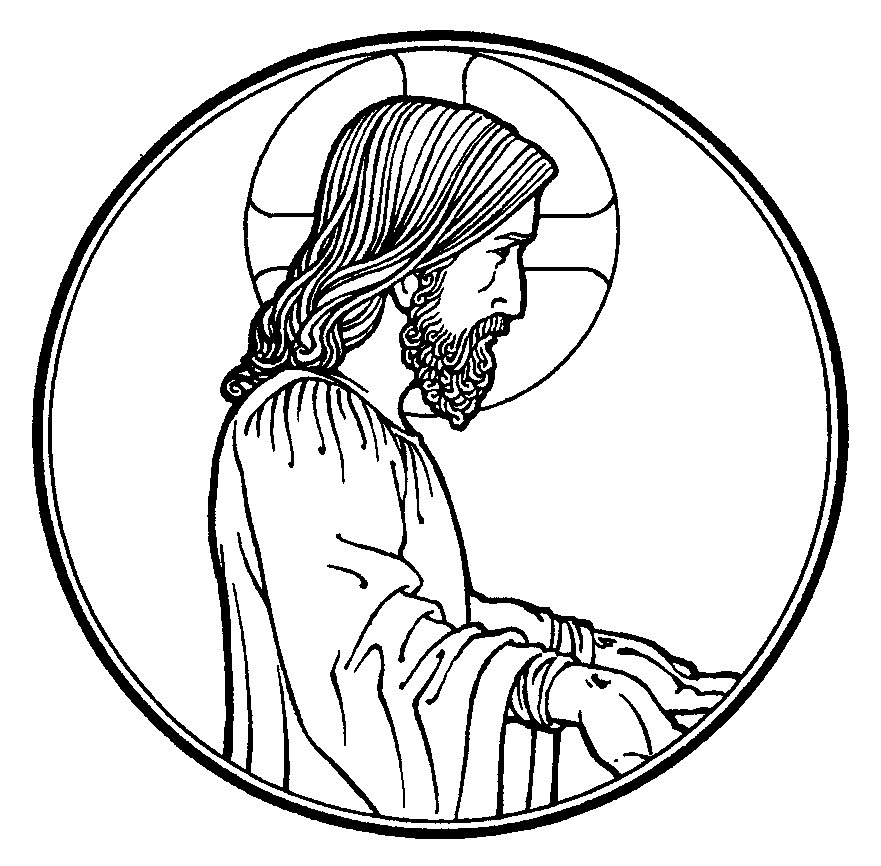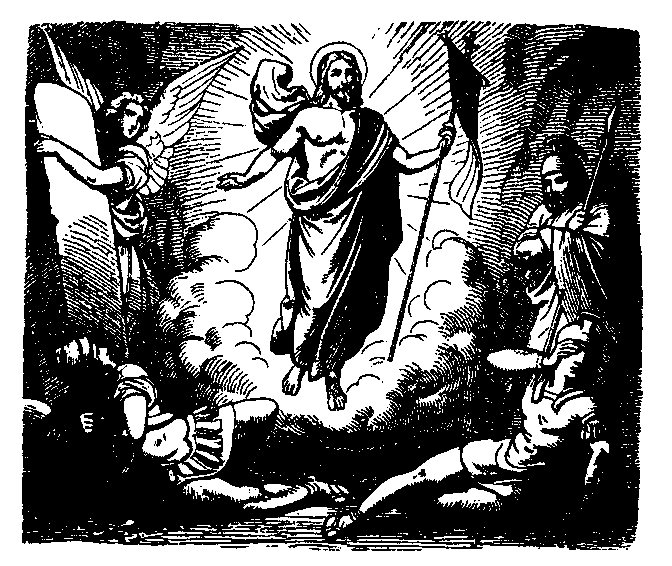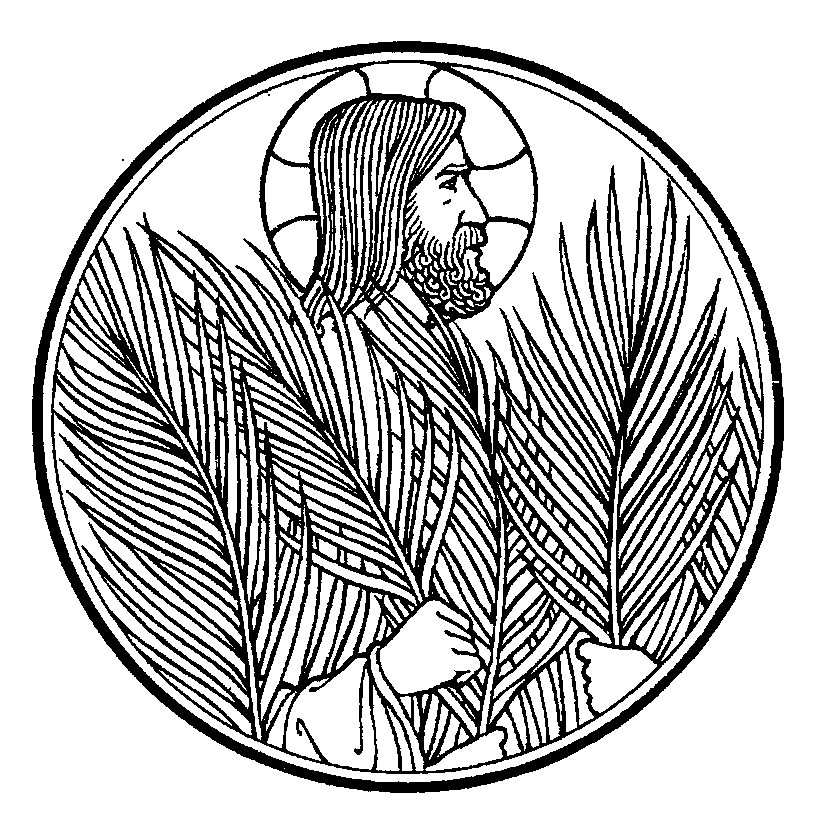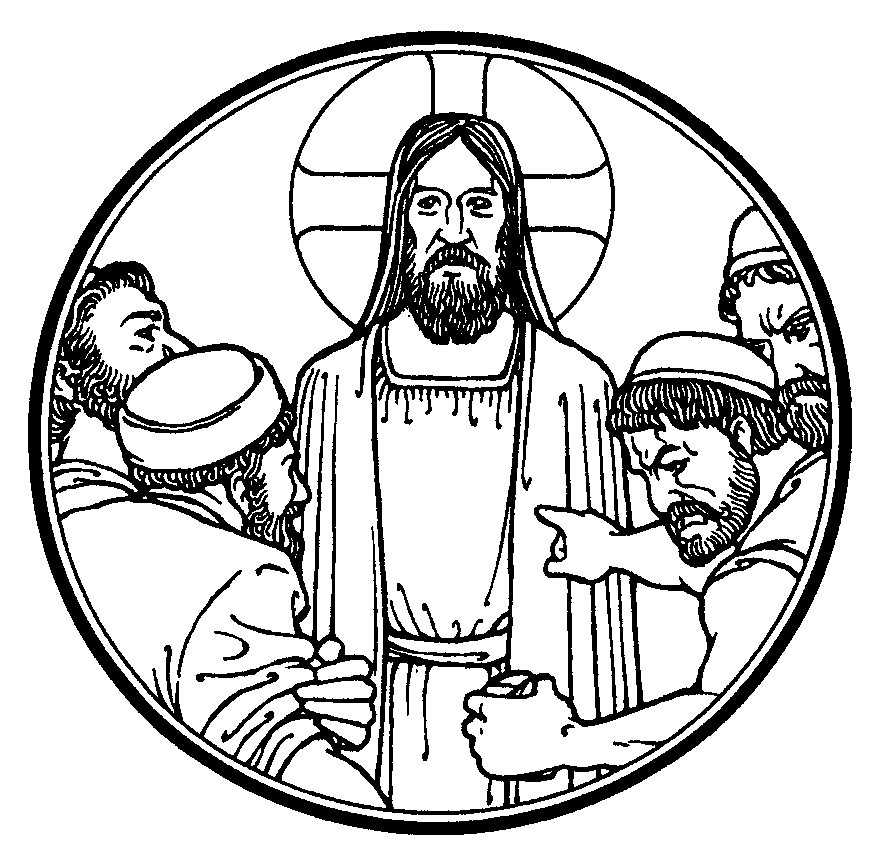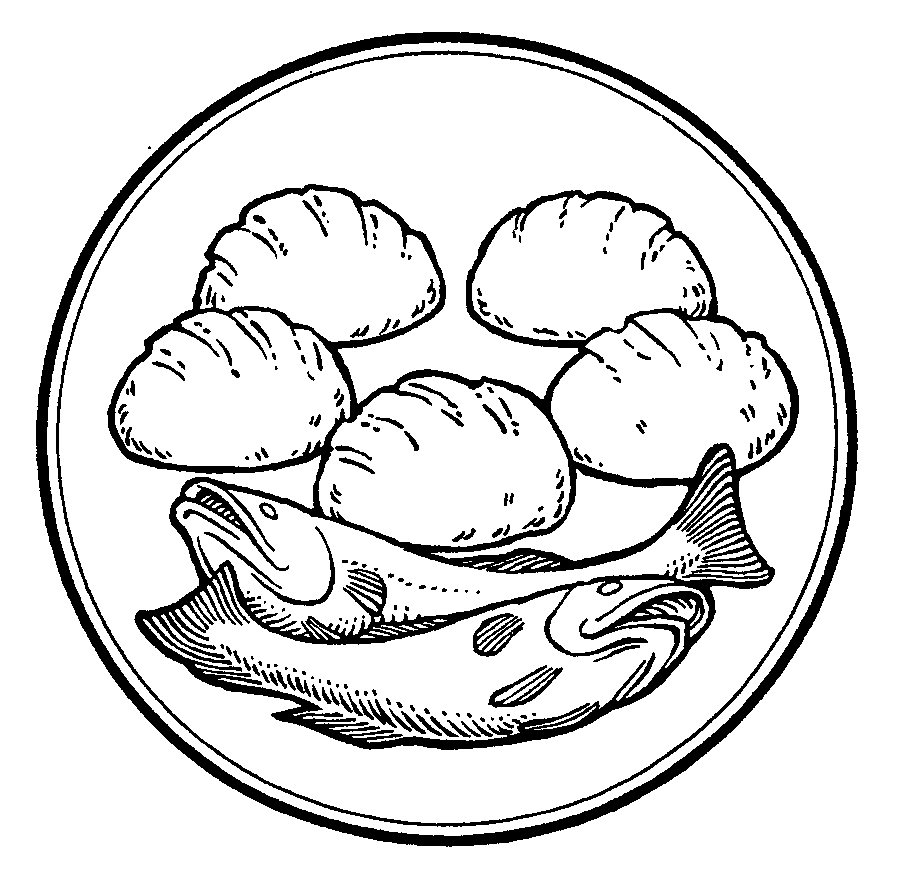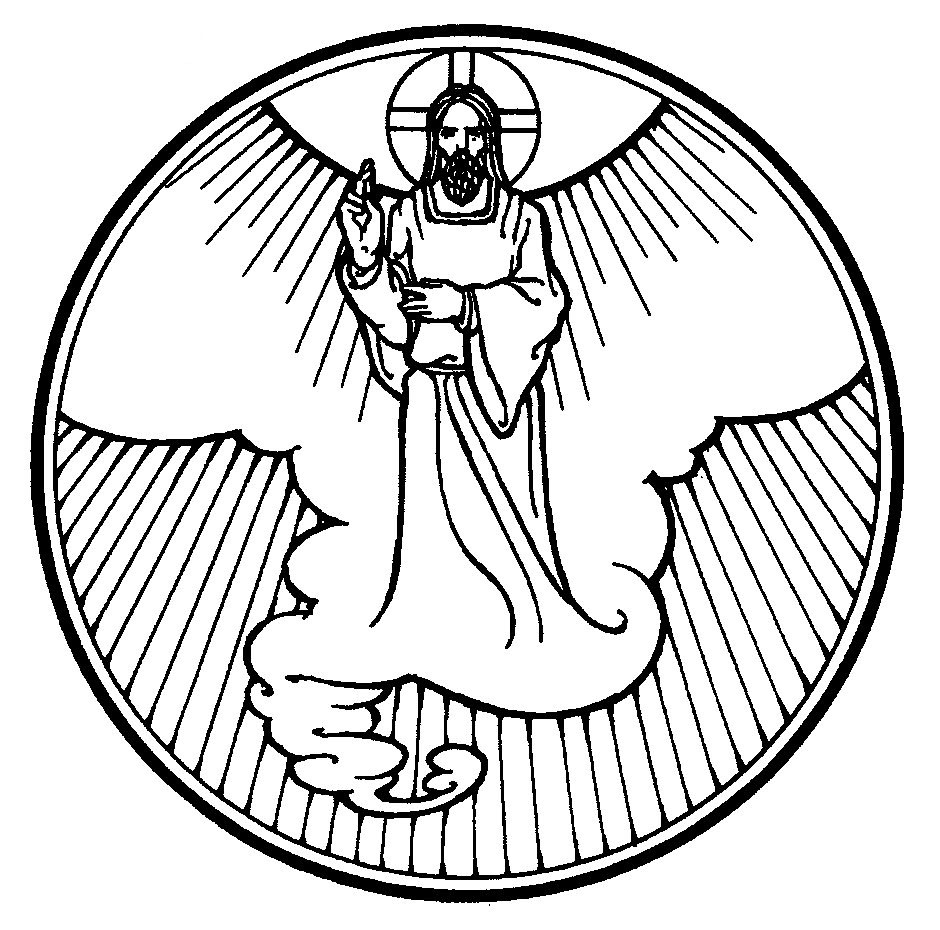
This last Thursday was Ascension Day. It marks 40 days since Easter and the day when Jesus was taken bodily up into heaven even as His disciples looked on. Now this is more than a mere historical remembrance. If it were, it wouldn't worth more than just a brief mention. However, the Ascension of Jesus into heaven is significant. It is significant for you, me, and the Church throughout the ages. By His Ascension, Christ has been crowned to receive the full glory, power, and might due Him as the Son of God. Jesus has ascended to prepare a place for His Church; He has gone to send forth His Holy Spirit to bring faith by His Word and Sacraments until Christ comes again in the fullness of His glory at His final return.
Now we may wonder why did Jesus have to ascend into heaven to do all that? The disciples may have wondered why as well. They might have preferred to have Jesus forever on earth with them like Peter had remarked at the mountain of transfiguration when Jesus had shown His glory and Peter suggested making a shelter in order to stay there longer. No doubt they would have loved Jesus to be continually teaching them rather than leaving even to send the Holy Spirit which to them may not have made sense. This is the importance of the words of Jesus in John chapters 13-17 as we have heard them the last several Sundays. On the night that He was going to be betrayed, He explained some of the mysteries as to His ministry and why it was necessary and for their benefit that He had to do all that was required of Him as the Messiah and leave them.
The Ascension of Jesus into heaven is important as part of that entire Ministry of Jesus Christ. As with all the other parts of His ministry, it was necessary to fulfill God's plan of salvation. It was all necessary to rescue and redeem His creation from the curse of sin. Since Adam and Eve's sin you and me and all children born naturally inherit the corruption of our parents and are guilty of sin and worthy of eternal punishment. To redeem humans in their fleshly corruption God had to send His own Son to be born of a human mother not through natural means but through the power of the Holy Spirit working through the Word in the Virgin Mary so that the Word of God would join human flesh without original sin. It was necessary for Jesus to be true man and true God. Only in the sacrifice of a man could God's wrath for sin be turned, but only by Jesus being true God could He keep the Law perfectly. In His preaching, teaching, and healing, He was announcing that the kingdom of heaven was at hand, that He was in His own person, fulfilling all OT prophecy, that in Jesus, God was reconciling man to Himself, and the power of sin, death and the devil was being overthrown. This overthrow of sin, death, and the devil could only happen through that sacrifice of the perfect Messiah as our substitute; therefore Jesus had to suffer and die on the cross in our place. He received the guilt of all sin upon His own flesh and the heavenly Father cursed Him upon the cross. Jesus had tried to prepare His disciples for this event as He spoke to them the night before He died. He told them that it was necessary that He be betrayed and die so that His Father would be glorified in His loving sacrifice of His own Son for us. Jesus told them that that time of weeping and mourning would only be for a short time; that He would come to them again. He was referring to His resurrection and its necessity to show that the payment for sin was indeed completed in Christ's crucifixion, to show that the power of death had been over turned and now resurrection from the dead is a promise for those who believe in Christ.
Now we get to the necessity of the Ascension. The disciples, of course, rejoiced when Jesus appeared alive to them after the resurrection, but they also had fear. They feared what would happen next. They did not yet understand. We can see by their question to Jesus just before He ascended that even then they still didn't get it. The disciples were still trying to figure out everything and see everything through the eyes of reason. This is one of the reasons why Jesus had to ascend, so that they could "get it" by the sending of His Spirit upon them. The Spirit could give them true understanding and bring to the disciples' remembrance all that Jesus had said to them. Jesus said in John 16 "I tell you the truth: it is to your advantage that I go away, for if I do not go away, the Helper will not come to you. But if I go, I will send Him to you." In this way, the disciples would be given power from on High so that they might bear witness to Jesus and to what He had done. They would be given not only the authority, but the knowledge through faith to rightly administer Holy Baptism, Absolution, and the Lord's Supper in the care of the young church. They would be given the Holy Spirit's inspiration to write down the Gospels and the books of the New Testament so that future generations would also hear the voice of the Good Shepherd and be saved from their sins by God's Grace.
Therefore, in Easter triumph Jesus entered the heavenly realm and was declared the king of Glory in heaven as well as on earth. This is what Jesus was talking about in John 17:5 "And now, Father, glorify me in your own presence with the glory that I had with you before the world existed." The glory, power, and honor that were due Him as the Son of God who was begotten not made, being of one substance with the Father, through whom all things were made was restored to Him. When we confess in the creeds that Jesus sits at the right hand of the Father it is not a place where His earthly body is confined. It refers to His position of authority as true God. Now glorified on high, His human body is no longer subjected to the regular rules of science, but His divine nature now shares Divine attributes to His human nature. Now that Jesus is ascended His resurrected human body is now even more free by the full exercise of Jesus' Divinity to be everywhere and anywhere He declares Himself to be. This is another benefit to us and the Church. He now is present where He has promised. Jesus comes among us through His Word as it is preached and studied. He is present in Holy Baptism and calls and gathers His sheep into the Church. Now that He is ascended He now also comes to us in a presence that is better and truer than the visible resurrected form that the disciples witnessed with their earthly eyes. Now as He is fully glorified, Jesus gives unto His people His glorified flesh and blood and the fullness of His godhead to ingest in, with, and under the bread and the wine no matter where we are around the world. In this way He comes to us poor forgiven sinners to strengthen our faith to continue to give us joy and hope as He prepares us for the place that He has prepared for us, that is, eternal life.
This is another triumph of the Ascension, for Jesus has gone to prepare a place for us. He is making ready heaven for the last day when He shall return in the same way that He ascended. When He returns, He shall come in His full glory and power to judge the living and the dead, to bring to life the flesh of all the dead and to those who believed on His name He will gather and restore body and soul and bring them to live for eternity in heaven. As we wait for that day, the Ascended Christ continues to send forth His Holy Spirit in the places where He promises to be, His Word, baptism, Absolution, and the Sacrament of the Altar. Jesus has ascended to prepare a place for His Church; He has gone to establish His Kingdom here and in heaven, He even now rules over all things, He sends forth His Holy Spirit, until His final return. He continues to intercede for us by His sacrifice so that we receive mercy from the Father, even as He hears our prayers. This mercy is yours by the forgiveness of your sins. You are redeemed in Jesus Christ. You are His child, you may pray to the father in Jesus name, and His sends His Spirit to you to give grace and faith in abundance through His sacramental presence. In this way, you too are now witnesses of His crucifixion, resurrection, and ascension by faith. Let us rejoice then that our Lord and Savior has Ascended on high so that He may also be with us here below. Let us who have received His presence and forgiveness be filled with joy like His disciples and bear witness to this joy. This same Jesus who has been crucified for your sins, risen from the dead so that you may not fear death, has now ascended so that we might ascend to Him at the last day. And on that last day He will come again to judge the living and the dead, but also to bring us with all believers into His eternal glory where we may dwell with Him forever in His joyous victory for Jesus Christ’s sake. Amen.
Pr. Aaron Kangas
